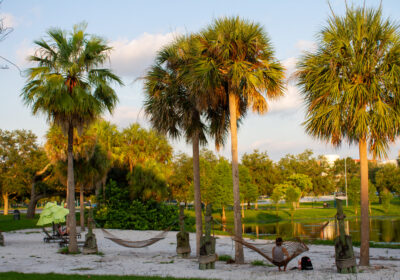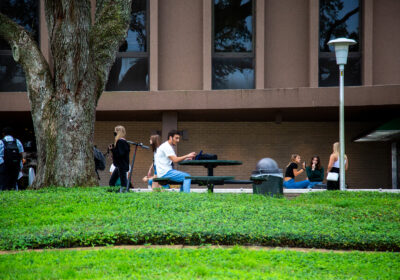OPINION: Honors College takes away valuable resources from other areas of USF in need

USF’s new Judy Genshaft Honors College held a ribbon cutting ceremony on May 12, but it will not actually be operational until June 12, according to a May 18 article from The Oracle.
The Honors College building consists of several new classrooms, studios and common areas. While some of these areas are open to all students, the facilities were intended specifically to help Honors College students thrive.
“This stunning building – a beacon for bright, talented and high-achieving USF students – is the realization of a dream. It is a home of endless possibilities – both for our Honors students and the dynamic faculty members who help to shape their futures,” said Judy Genshaft during the grand opening.
This building took a lot of time, money and space from the university. Instead of investing in extravagant new buildings, USF needs to focus on putting money toward issues that have been going on for a long time and affect the entire student body.
Construction for the Honors College cost the university $43 million dollars. Roughly $28 million of that funding came from Judy Genshaft and the state specifically for this project, according to a May 13 article by The Oracle.
However, the university covered the remaining $15 million. This money could have been put to better use by improving buildings that are already used by numerous staff and students every day.
Students say that older buildings like Cooper Hall, which is only .3 miles away from the new Honors College, are in need of new renovations.
“My friends and I always joke about how the College of Arts and Sciences is neglected by the university, and you can tell just by looking at our building. Cooper Hall is deteriorating,” stated English creative writing major Grace Vlaming in a Jan. 26 article by The Oracle.
Not only was this project extremely expensive, but this new building takes up 85,000 square feet of space on campus. This space is dedicated to “open-design classrooms, signature learning lofts, and dedicated studio spaces for art, food and culture, music, and technology,” according to the USF website.
This space could be better used to build a new parking lot or parking garage that would be beneficial to all students. Out of 166 USF students polled, 42% said that searching for parking always makes it harder to attend classes and 36% said it often does so, according to a 2022 article by The Oracle.
Parking on campus has been a problem for years and the university has yet to do anything to solve it. In fact, they have even oversold parking passes, making the issue worse.
The parking problem has caused safety issues, as 74% of students polled by The Oracle in 2022 said that traffic congestion has caused them to have an unsafe experience with a vehicle on campus. Making improvements that help students stay safe should be prioritized over new classrooms and study areas.
USF has also not added any extra parking to compensate for this new building, according to the 2022 campus parking map. Popular spots like Cooper Hall, the library and the Z School are also in this area and a lot of students already need the parking spaces to go to these buildings. Once the Honors College is up and running there will be even more students fighting for parking around Genshaft Dr. and Leroy Collins Blvd.
While this new building will improve the experience of the Honors College students, USF needs to remember and prioritize the needs of the rest of their students as well. The study rooms and cafe on the ground floor are open to all students; however, this is not an excuse for the university to let other areas of campus fall to the wayside.
There are many more useful ways that USF could have used this funding and space. It is important that they treat the rest of the students with the same respect and make improvements to the rest of the college before building fancy new infrastructure for specific groups.






